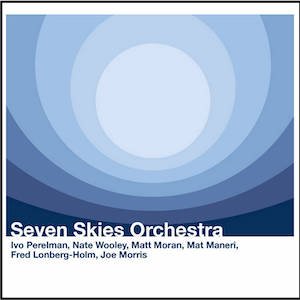Label: Tao Forms, 2025
Personnel - Ivo Perelman: tenor saxophone; Matthew Shipp: piano; Mat Maneri: viola; William Parker: double bass.
The association of saxophonist Ivo Perelman and pianist Matthew Shipp spans three decades and continues to yield fresh results. On their latest effort, Armageddon Flower, the two industrious artists match wits with expert string players: violist Mat Maneri and bassist William Parker. The quartet takes full advantage of their instruments' range and timbres, embracing nonlinear structures that make the music feel both through-composed and spontaneously conceived.
Their free styling remains compelling, emotionally stirring, and artistically inspired—enough to keep listeners’ ears wide open throughout a session that opens with dark textures, despite the uplifting title “Pillar of Light”. It's difficult to discern whether Perelman's saxophone is weeping in agony or rejoicing in ecstasy. Yet a sense of desperation—and at times resignation—emerges from the saxophone-viola interactions, which are filled with magnetic motivic strategies and strident cries, all layered over the cerebrally paced harmonic flow generated by Shipp’s nimble fingers. A variety of ideas are unleashed in this eruptive blend of modern classical, chamber jazz, and free improvisation.
“Tree of Life” is another study in contrasts. The sax-viola introduction is backed by steady piano steps, which gradually ascend heavy slopes into tonally low-pitched motion with an accelerated heartbeat. Vigorous bass plucks, swirling piano pulses, and saxophone squeals move together in agitated bursts, and the volatile atmosphere shifts again later from accessible harmonies—delivered with broad elasticity—to dense sonic walls, smeared by the abrasive staccatos of saxophone and viola. The piece concludes in a restive mode.
Perelman compares this music to reading the Book of Revelations in the Bible, and the title cut, “Armageddon Flower”, indeed exudes a sense of transcendence, thanks to Shipp’s inventive pianism and Parker’s freedom to soar. Some rhythmic patterns feel deeply tribal—in the sense of pure African origins—while others are distinctly contemporary, resonating with the complexities of 21st-century free jazz. “Restoration” closes the session with Shipp in command, beginning with thunderous blows in the piano’s lower register before gently resolving into a moment of absolute melodic reverie. Midway through, we’re treated to resonant mutual bowing from bass and viola. Aiming high, Perelman and Shipp break new ground with this configuration.
Favorite Tracks:
01 - Pillar of Light ► 03 - Armageddon Flower






















